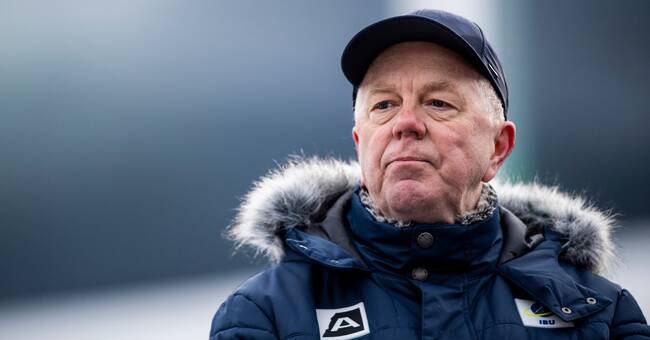The 74-year-old Norwegian Anders Besseberg, who resigned in the autumn of 2018, does not want to comment on the accusations of corruption.
The report highlights unethical behavior in the IBU's management and that not enough has been done to prevent systematic doping in general, and from Russia specifically, during the period 2008-2018.
The report says that Besseberg has had no interest in protecting the sport from cheating.
According to the report, the Norwegian has also most likely been bribed by Russian leaders through, among other things, hunting trips, luxury watches and prostitutes.
Wanted to see change
Despite the fact that Olle Dahlin was vice chairman 2014-2018, he calls the information "shocking".
- If we talk about crime and those who commit it, it is fundamental that you try to hide as much as possible.
It has evidently happened here.
Then you can see in the report that there are disagreements about a number of things during the journey and what I mainly reacted to were attitudes and values that I did not stand up for.
Therefore, I came to the candidacy as chairman to start a real change process, he says.
Could you and other leading figures in the IBU have done more?
- There are certainly always opportunities to do more, so I absolutely do not want us to beat ourselves up.
We can still say that the very large change process that has taken place over a couple of years has meant that we are very high on the scale when it comes to "good governance".
In any case, we have used the position we have ended up in in a positive way.
But some damage still happened?
- That's always the case.
It is well as they say: "It is easy to submit the tip on Monday".
Not transparent enough
During Besseberg's time, the organization was top-down and, according to Dahlin, transparency was not sufficient.
Measures have now been taken there by, among other things, introducing a maximum ceiling on how many times a board member can be re-elected, and an independent "Biathlon Integrity Unit" has also been introduced, which will now investigate possible penalties for Besseberg.
How has your relationship with Anders Besseberg been?
- It has been professional from a board perspective.
We have not hunted together if I say so, says Dahlin.
How do you look at him today?
- I searched for Anders on the phone the day after the raid that was at the IBU's office in April 2018. He did not answer and since then I have not tried to reach him.
While you were vice president, did you see any of the hunting trips or prostitution that is written about in the report?
- No, I did not.
If you look at the report, it looks like most of it has happened in Russia.
Jonathan Taylor led the commission, which wrote the 200-page report on Besseberg.
He gives his view on the matter:
- Firstly, the chairman has had a culture of total power for a long time.
And this guy has been sitting for over 20 years.
So it was almost a cult of personality.
Olle came in in 2014 and then it was probably the case that most of the board did not challenge him.
They agreed to whatever he did.
Not all, but most, he says and continues:
- It's about what culture you get into. Whether it is open for discussion or not.
There is no excuse, but you know what it's like when you enter a new place and have questions.
It is difficult to know how to set them.
Taylor points out that progress was made during Dahlin's tenure as vice president.
- De facto, they started to fight back against Besseberg during the period 2014-2018.
It was a slow cultural change where people started to question things.
A police investigation is underway.
Besseberg denies all allegations through his lawyer.

